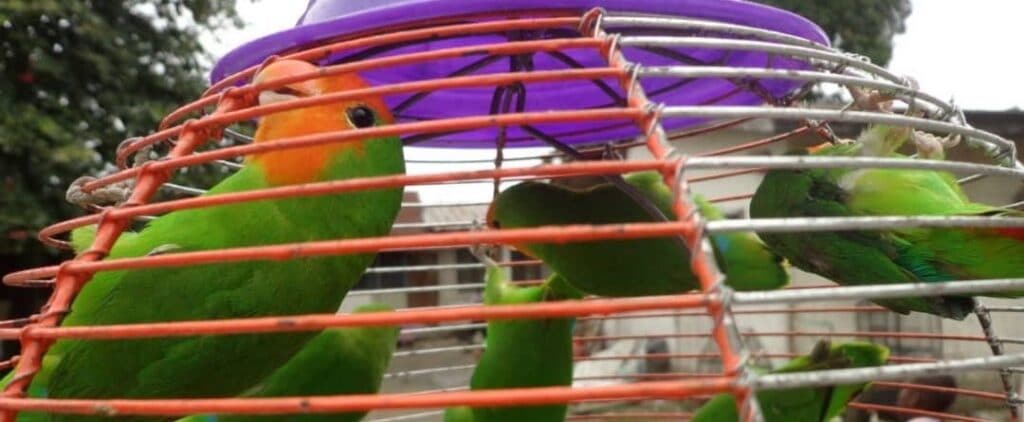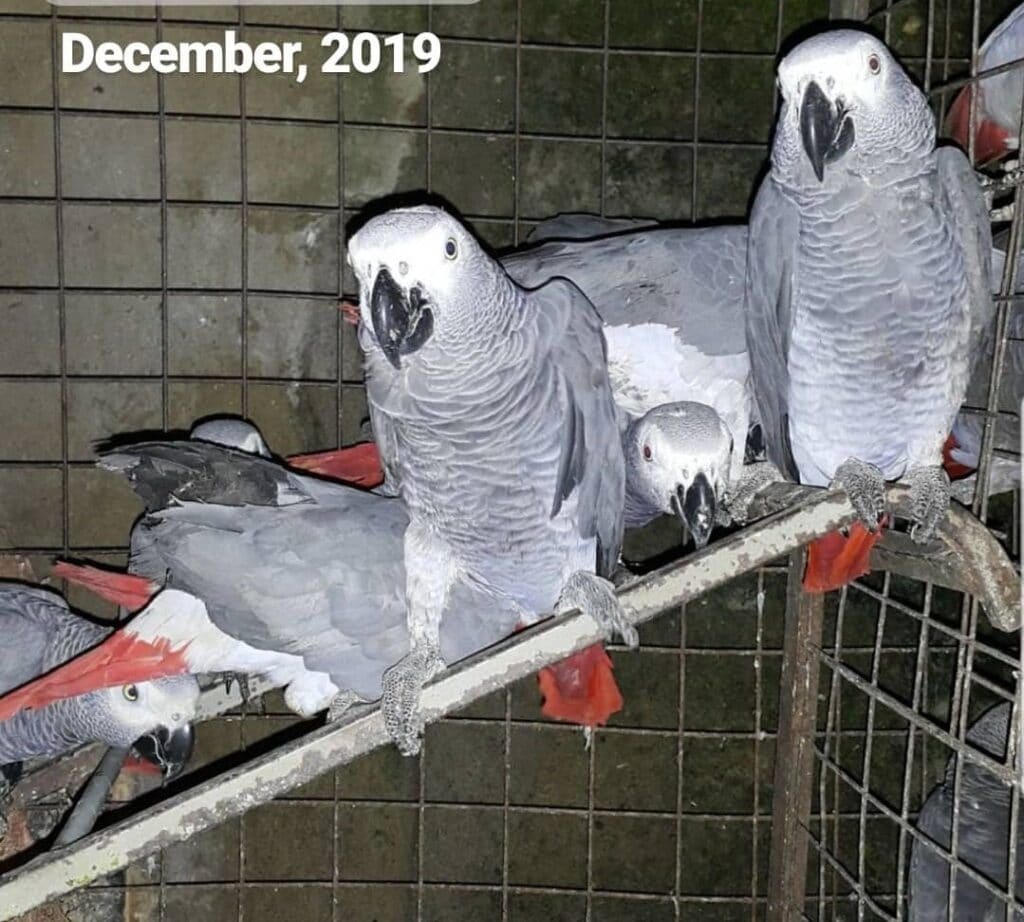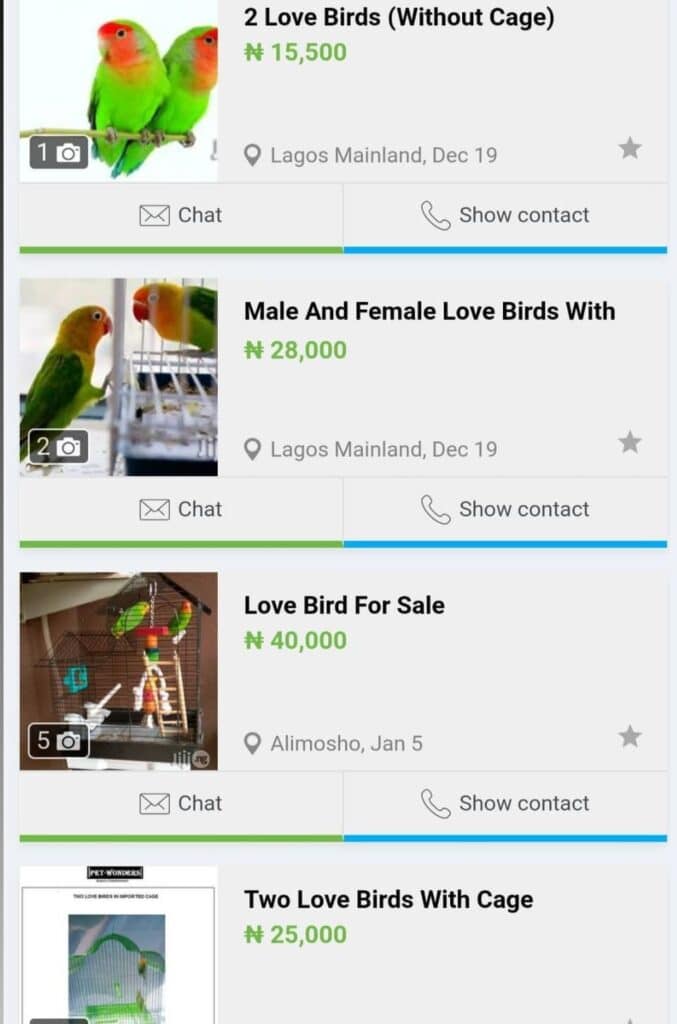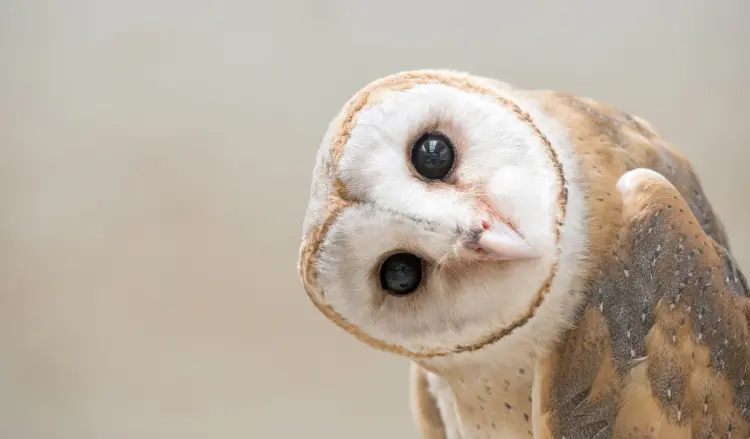Unravelling the scope of Illegal Killing, Taking and Trade of Birds (IKB) in Sub-Sahara Africa

Direct killing and taking of birds away from their natural environment can be a major contributor to the decline of some bird species. However, the scope and scale of Illegal Killing, Taking and Trade of Birds (IKB) remains largely unknown in sub-Sahara Africa. As a first step to better understand the threat, BirdLife International conducted a region-wide literature review between September 2020 and May 2021, with an aim of identifying the bird taxa & numbers affected, IKB methods, factors driving IKB and affected countries in sub-Sahara Africa.
What meat is on your plate? Is it chicken? Is it duck or is it a Grey Patridge? In Sub-Sahara Africa, hundreds of thousands of birds are killed annually through poisoning, with a significant number of these birds ending up on the plate in homes and hotels. Direct killing and taking of birds away from their natural environment could also be a major contributor to the decline of some bird species. For example, the Hooded Vulture (Necrosyrtes Monachus) declined by 62% in and around the Masai Mara National Reserve, Kenya from 1976 to 2005.
However, the scope and scale of Illegal Killing, Taking and Trade of Birds (IKB) remains largely unknown in sub-Sahara Africa. As a first step to better understand the threat, BirdLife International conducted a region-wide literature review between September 2020 and May 2021, with an aim of identifying the bird taxa & numbers affected, IKB methods, factors driving IKB and affected countries in sub-Sahara Africa.
Key Highlights & Trends
Africa is endowed with rich avia-fauna with 20 families found nowhere else in the world. This number combined with others including migratory species, the continent and its islands boast hosting of 111 bird families. However, IKB continues to be practiced in many rural African communities putting immense pressure on many birds. Out of a total of 632 cases analysed in the literature review, a whooping 43 families of birds are impacted by IKB, majority being raptors (mainly vultures) – about 31% of 632 cases, and Psittacidae (parrots and lovebirds) at 22%.

Reasons for IKB are diverse, ranging from ensuring bird meat is availed alongside a simple family meal to international criminal gang networks that run into billions of dollars involving trade in birds and their body parts. Millions of birds are documented to be affected by IKB and hundreds of thousands of them go unreported. Misreporting on the number of birds exported with legal permits enables trade of more birds, than allowed in specific trade quotas for example in the Democratic Republic of Congo (DRC). Lack of capacity to monitor wildlife crimes lead to poorly documented numbers of birds taken from the wild.
According to this preliminary study, most birds in sub-Sahara Africa are taken from the wild for illegal trade (42% of the 632 cases), for both local and international markets. Trade of birds for pets and belief-based use are the major factors driving this trade. Thousands of birds meant for pet trade die during capture and in transit. Further, many of the birds reaching their destination markets alive, are kept in pathetic conditions as pets without inadequate water and food. In Senegal, 25 million birds are estimated to be kept in captivity every year.
Birds are an important source of food for subsistence in Africa, as a cheap source of animal protein. Poaching birds for food accounted for 29% of the cases reviewed. Dead parrots and vultures among other birds are a common sight in the popular voodoo market in Togo, West Africa (a key hotspot for IKB) and Muthi market in South Africa , driven by belief-based use which accounts for 14% of this poaching. In addition to vultures, herons and hornbills are among 354 species of birds used for belief-based use in 25 African countries. From the documented cases, Nigeria has the highest number of IKB incidences in West Africa, Cameroon in Central Africa, Tanzania in East Africa and South Africa in Southern Africa.
Capture Methods
Brutal methods are used to take the birds from the wild, the most common being poisoning accounting for 67% of the cases. Human wildlife conflict in Kenya, for example, leads to vultures falling victim of unintentional poisoning, the target being predators that prey on livestock. Intentional poisoning is the most common where vultures are targeted by mammal poachers to conceal their illegal activities from authorities. Trapping constituted 23% of the cases analysed and ranged from use of glue and sticks, nets, thread, to sticks. Climbing and felling trees to remove chicks from their nests, use of anaesthesia and tranquillizers, use of pepper, catapults are also popular methods. Shooting and use of hand-held explosives accounted for 11% of IKB cases, where hundreds of birds congregating at feeding sites are targeted.
Poaching incidences are high in countries with poor anti-poaching laws, areas where wildlife gather in large numbers e.g., in wetlands, along migratory routes and during periods of food shortage. While some countries have well outlined laws and policies that protect birds from IKB, a big challenge still exist in enforcing them. Consolata Gathoni, the review lead notes, ‘One will not struggle to notice illegal activities being practised – in open marketplaces, roasted bird meat being hawked at bus termini, ferrying of live birds in buses and even websites advertising birds as merchandise’. No cases were cited for Djibouti, Eritrea, The Gambia, Mauritius, Sudan, and South Sudan despite existence of IKB in those countries.
“The results of the literature review form a good basis for creating a better understanding of the IKB vice in the continent. There is an urgent need to conduct a full scientific review in the region regarding IKB to fill the many existing knowledge gaps. A better understanding of the subject will lead to better targeting of interventions whether at national or international level”, concluded Alex Ngari, the Migratory Birds and Flyways Programme Manager for Africa.
Webinar recording of the IKB review results launch can be viewed here
This IKB review was supported by Conservation Leadership Programme (CLP).

Stay up to date
Sign up to receive the latest bird conservation news. You’ll also receive updates about our projects, science and other ways to get involved including fundraising.
Thank you for your support, we are committed to protecting your personal information and privacy. For more information on how we use your data, please see our Privacy Policy. You can unsubscribe from emails at any time by using the link in the footer of any email from us.

